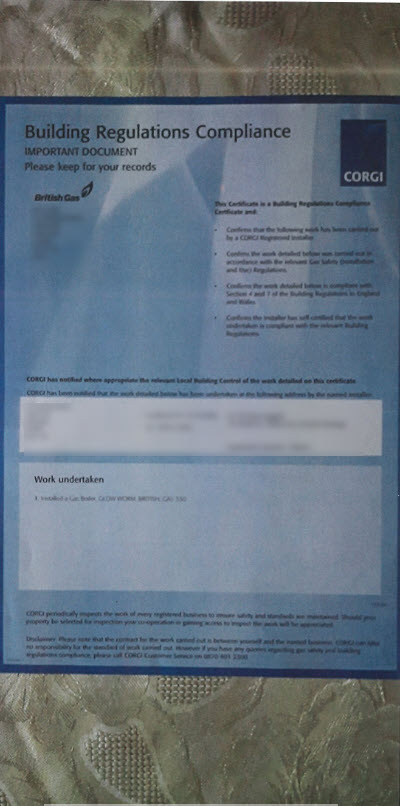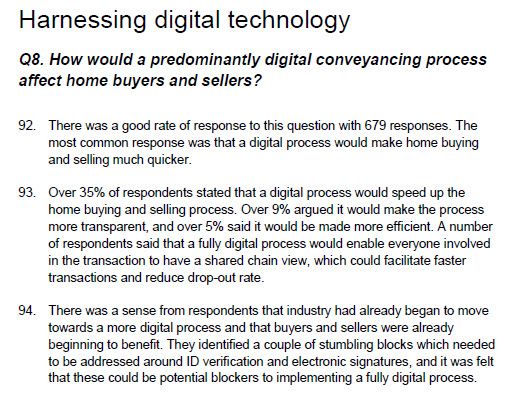The pandemic has highlighted that residential conveyancing in England is broken
Lack of technology, a pandemic, a stamp duty holiday and buying a house. What could possibly go wrong? Conveyancing. That's what.

If you're reading this after mid-2021 then the below is about buying a house in the UK in the first half of 2021.
Like many people, I'm trying to beat the Stamp Duty Holiday while I'm buying and selling a house. I knew that solicitors were tech averse from my days working with Home Information Packs (remember them?) but the level of dysfunction, it seems in the whole industry, is quite incredible.
For some background to this post, I'm keeping a list of issues which I've observed during the conveyancing process which started for me in October 2020, and finished at the end of February 2021. Some examples of the issues I've encountered are:
- Incorrect property address on documents supplied the vendor (not spotted by either conveyancers)
- Illegible (blurred and/or poorly scanned) documents - not rejected by either conveyancer. Using something like Microsoft Lens (which is free) is so simple and works really well even in low light.
- USB sticks sent by post. With large amounts of money being used for deposits, a USB stick is a great way to deliver ransomware from nefarious actors and is a no-no according to the Solicitors Regulation Authority
- A variety of incorrect email addresses. If the address is valid and the message goes to the wrong person, what are he GDPR implications?
- Attaching the wrong attachments to emails. A minor inconvenience, but it's the time that's important - the back and forth between me and the conveyancer. What a waste!
So, is it just the conveyancers in my chain or is there a bigger problem?
Doing a little digging, the Law Society did a Thematic Review in April 2019 which makes for some interesting reading.
We visited a sample of 40 law firms offering residential conveyancing services and conducted a detailed review of 80 case files.
So they visited 40 firms, but only looked at 80 files. That's OK, but a small sample of the industry. From a technology point of view, they will either use technology or not, irrespective of number of cases.
The thematic review data was used in conjunction with findings from a survey by IFF Research Understanding consumer experiences of conveyancing legal services which makes pretty damning reading;
Over three quarters of people were 'very satisfied' (46%) or 'quite satisfied' (30%) with their solicitor's service. This compared with 14% who were dissatisfied.
This is incredible. Imagine if Amazon, or any other company had this level of (dis)satisfaction. Heads would be rolling. Why is this acceptable?
14% of those who made a complaint reported that they did not receive a response. This issue was also identified in our previous research into solicitors' first tier complaints processes, where 20% of complainants reported not receiving a response.
So if the service is so bad and someone actually complains, around a fifth didn't even get a response. Mistakes happen, but it looks like there is a collective head in the sand. In this industry, lessons will not be learned it seems.
As someone that works in tech, I was curious to understand the general lack of technology use. As mentioned in my bullet points at the start of the article, my conveyancer doesn't seem to be able to operate an email system, which is quite startling when you think about it. I wanted to understand why more advanced tech has not been used, such as the use of form and text recognition. Even though these tools have been around for years, it's probably still considered quite advanced. These tools are very cheap and could save a lot of time, for example the Azure Form Recogniser API is free for 500 pages a month. You can try and upload an image here. I submitted one of the blurred documents I'd been sent, and as expected the output was incomprehensible.
Even so, in reality this file had gone through two sets of solicitors to me, I rejected them, and they had to go back through the solicitor chain to the vendor. What was the cost? How much time was wasted?
Here is the file I uploaded with a couple of sections redacted. Can you believe this form was actually sent to me by my solicitor?

There are lots of "scanner apps" available such as Office Lens which would be much better and faster, with auto crop and enhancements. Why did the vendors solicitor not suggest such a tool? Why didn't they look at these files themselves and reject them and save a lot of time and bother?
Another bug bear was the continual signing of paper documents which I needed to physically post or put through the letterbox of the office. This is inherently slow and risky (especially if using the post). There's a lot of e-signing companies such as Docusign (which my estate agent actually used to get us to sign their contract). Surely this is one area where speed can be increased? It would be cheap and efficient too.
What's the solution?
It's come to the perfect storm of the stamp duty holiday and COVID precautions focussing attention on the conveyancing process, and how inadequate the whole industry is. The government have been touting for a while that they would speed up the process, but I think the industry has been shaken to the core. It knows it is broken, and knows more or less what it needs to do. A quick Google reveals many e-conveyancing systems. They will have a cost, but when clients are unhappy, conveyancing takes a quarter of a year then something's got to give. Hopefully a bout of constructive destruction will take place in the industry, allowing some innovation to flourish. Time will tell.
Even the UK government has been looking into how to speed up the process in the 2018 improving the home buying and selling process responses document from April 2018 that technology is the the ideal, although not everyone agreed. From page 27 of this document we can read;

I'm 100% certain that the lack of technology caused virtually all the problems and delays in my chain. It's sad to realise that all these reviews & consultations by the government and regulators are now 3-4 years old. Technology has moved on even more since then, yet the industry has not. As we have seen on the high street and other areas of life, those that cannot adopt change and innovation will perish. Let's hope for the sake of future house transactions that this strange situation we're living in with a pandemic & remote working is the event that forces change on the industry.
